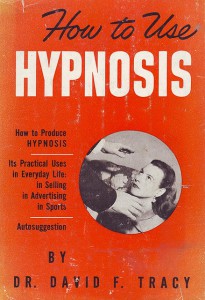Popularity Marketers rely on you to like them and want to be like them to buy from them.

And what’s wrong with that?
Like, Know and Trust are important factors when someone considers buying from you.
With Popularity Marketers there is plenty of like. Naturally charismatic, their healthy egos infuse multiple content-marketing channels including video, blogging and social media.
But sometimes, it just feels not quite right.
You can’t put your finger on it. You see their faces everywhere and hear raving endorsements, but when you look at their marketing something just doesn’t fit with you.
Something that suggests the “like” factor, outweighs the “know and trust” factor.
In other words:
Popularity Marketers rely on their likability (not their product’s ability) to succeed.
Here are some things to watch for when assessing marketing, and when planning your own content and copy:
They mention a “6-figure business…”
…but never the currency, how they earned it and how much is profit.
One of the reasons I respect Carol Tice.

Their pictures show luxury items
That they don’t usually own: “me in front of a cruise ship” “me in a posh hotel”, “me on a tropical beach.” Being somewhere and capturing it on film doesn’t make it proof of a day-to-day lifestyle.

They sell their story instead of lessons
Their marketing may rely heavily on a personal story which may be inspiring. Overcoming a hardship for example.
Or their marketing may rely on you wanting to live their current story: travelling the world, hanging out in cool locations.
However, if the story doesn’t relate directly to the business they run, and they don’t offer explanations of “how” they actually overcame their burden, travel the world or find those cool locations, proceed with caution.
They may be hoping that you want to “be” like them and spend time with them enough that you’ll pay anything for it.
Bronze, silver, gold, platinum, titanium and unobtanium mentoring levels all available
Their business model has changed… a lot
They release products and change their business based on trends, rather than using trends to market products that stand the test of time.
There’s nothing wrong with changing business models, but watch out if they’ve had 4-5 different websites and businesses in the last year or so, and are positioning themselves as experts in each one
They talk a lot about “mindset” in their marketing

If you don’t quite “get” what they do, it’s probably your mindset.
Recently someone I know emailed me with an opportunity. She sent me a 60 minute webinar to explain.
I watched 10 minutes and it made no sense. I researched the internet and despite celebrity endorsements I couldn’t understand what the business actually did. I asked her to sum it up:
“We help people create financial freedom by turning an expense into an income”
That told me nothing. I didn’t know what I had to do or what was involved so I politely declined.
She told me that was okay, but if I knew:
“Anyone with big dreams who’s looking to create additional income to achieve them…”
She’d love a referral.
In other words, it was my fault I didn’t “get it” not the company’s fault for not having a clear marketing message.
Their content promises wildly attractive generalities
Want to be irresistible? Magnetic? Have the life you deserve? Follow your dreams? Want to draw to you what you want and need to create the life and business that you truly want? Be a powered, dynamic, authentic leader?
You get the picture.
Clumsy bragging
Especially in videos.
When they mention hanging out with someone famous, or their amazing life-story from the brink of disaster to success, does it feels uncomfortable to you?
They might stumble over the words, or hesitate, or look away. Not a guarantee that what they’re saying isn’t true, but it may be that they uncomfortable because they’re hoping you don’t pin them down and ask them questions about the subject (see below section)
Want to see a brag done well? Look at point 2 in this article. See how Brian Clark leaks a conversation with Sean Jackson to slip in a humble brag about Copyblogger’s traffic without looking like an ass?
It’s subtle and it works well.
We think Brian is humble because he said no to Sean, but the information about the traffic gets out anyway. Genius.
Marketing by omission
The celebrity they hung out with, they met in passing. They turned over 6-figures and made huge losses, they had to move back in with their parents, their day-to-day lifestyle is funded by their spouse, they’re resting on a larger inheritance or redundancy payment.
There’s nothing wrong with any of these things.
It’s only a problem if they need you to “know” a different story to “trust” them.
Want to make sure these techniques don’t slip into your own marketing? Read this other post on how to avoid being a “fake expert”
What about you? have you noticed these trends in content-marketing recently? Has it put you off buying from someone? Or have you been caught up in popularity marketing before realising the substance was more flimsy than the promise? Let me know below…

this post is perfectly timed for me, Amy. I’m pondering copy/ blogging/message as i move into revamping my site and have been refining how to share what I offer clients. Checking out the links…and I like Carol Tice too. 🙂
I’ll put the coffee on if you bring the bagels, k?
Carol is great! Feel free to drop me a line if you want to bounce around ideas over those coffee and bagels! I mean it!
If you work in marketing, particularly of the internet-based sort, it’s important to be VERY clear what exactly it is that you do for a living. Consider posting your tax returns.
I’ve noticed growing skepticism toward internet marketers over the last couple of years. Which I endorse.
http://www.theverge.com/2012/5/10/2984893/scamworld-get-rich-quick-schemes-mutate-into-an-online-monster
It’s 2013. Any marketer who uses the word “guru” without irony needs to work at Burger King.
Thanks Emerson – appreciate you commenting here. There’s a lot to be said for good old fashioned: “this is what I do, this is how I do it” businesses and marketing. It’s frustrating when messaging is deliberately mysterious in the hope that you buy.
Thanks John!
If the popularity marketers are following you, that must make you über-popular! 😉
Great points Amy.
I make it a point to avoid these guys (and as Carol says, they’re usually guys). Sometimes they follow me on Twitter; I never follow back, and sometimes I report them as spam.
Hi Amy — thanks for the shout-out! And mine would be the US dollar bagel. (Cute graphic!)
I am SO with you…when I hit a site and the guy (why is it almost always a GUY?) has plastered his site with pictures like, “Here’s me on a beach in Greece…you could have this lifestyle too if you pay for my thing…” I run the other way.
The fact is, most of these folks got started in the early days of blogging, and their advice probably won’t work for you. And each person’s blog success is pretty unique, I find. Or as Jon Morrow said to me after his presentation at NMX in Vegas…”People can learn my principles…but nobody can do what I do.”
We each need to find our strengths and apply the best practices of blogging in the way that fits who we are, and what our audience needs, or it’s not gonna fly.
Thanks for weighing in Carol!
I’ve seen more women do this in the last couple of years. A little more subtly perhaps, but with the same undertones of “be in my presence long enough and you’ll succeed.”
It distracts you from learning and applying real lessons, from writing, trying new things and getting stuff wrong.
Unfortunately, this is a lot less sexy than sitting on a beach. No-one wants to see you sstaring at a blank screen for hours, or tearing your hair out when you make mistakes, but the action and hard work pays you back in the future.